
Dylan Hicks
Lecturer Active Communities & Social Impact / PhD Sports Biomechanics, Flinders University
Less ![]()


Dylan Poulus
Senior Research Fellow at Movember & Senior Lecturer, Southern Cross University
Less ![]()
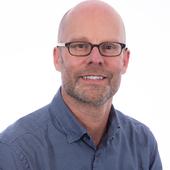
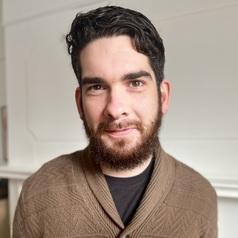
Dylan J. White
Philosophy PhD Student, University of Guelph
I am a philosophy PhD student studying cognitive science and the philosophy of technology, especially AI ethics, at the University of Guelph.
Less ![]()
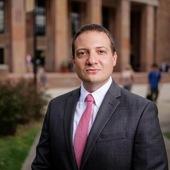


Eamonn Jordan
Professor in Drama Studies, University College Dublin
Eamonn Jordan is Professor in Drama Studies and former Subject Head (2011-2014) at the School of English, Drama and Film, University College Dublin. His book The Feast of Famine: The Plays of Frank McGuinness (1997) is the first full-length study on McGuinness's work. In 2000, he edited Theatre Stuff: Critical Essays on Contemporary Irish Theatre. He co-edited with Lilian Chambers The Theatre of Martin McDonagh: A World of Savage Stories (2006).
His book Dissident Dramaturgies: Contemporary Irish Theatre was published in 2010 by Irish Academic Press. In 2012, he co-edited with Lilian Chambers The Theatre of Conor McPherson:' Right beside the Beyond'.
In 2014 his monograph From Leenane to LA: The Theatre and Cinema of Martin McDonagh was published by Irish Academic Press.
In 2016 he introduced and selected with Finola Cronin The Contemporary Irish Theatre and Performance Studies Reader for Carysfort Press, a publication with over 70 essays.
September 2018 saw the publication of The Palgrave Handbook of Contemporary Irish Theatre and Performance, a work he co-edited with Eric Weitz.
The Theatre and Film of Conor McPherson: Conspicuous Communities has been published by Methuen Bloomsbury in February 2019.
In 2020, Justice and the Plays and Films of Martin McDonagh was published by Palgrave as part of its Pivot series of publications.
Less ![]()
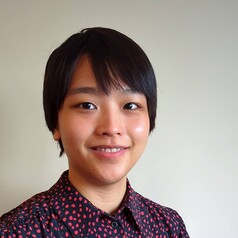
Ean Tsou
PhD Candidate in Entrepreneurship and Innovation, University of Calgary
Currently a PhD Candidate in Innovation and Entrepreneurship at the University of Calgary, Calgary
Less ![]()

Earlence Fernandes
Ph.D. student, Systems and Security, University of Michigan
I'm interested in Internet of Things security, with a focus on smart homes. Previously, I've done research on Smartphone Security (Android, Windows Phone), and Operating Systems Security. I like building secure systems. My advisor is Prof. Atul Prakash.
Less ![]()
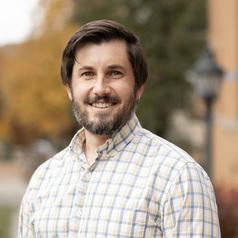
Eben Levey
Assistant Professor of History, Alfred University
Eben Levey completed his PhD in 2021 at the University of Maryland, College Park. Prior to Alfred University, he taught at Boise State University. Western Washington University, American University and University of Maryland, College Park.
Levey’s dissertation, “From Liberation Theology to Teologia India: The Progressive Catholic Church in Southern Mexico, 1954-1994,” expanded the scope of histories of Liberation Theology (a progressive Catholic movement that emerged in the late 1960s) by centering a focus on Indigenous Mexico. He asked two parallel questions: How did Liberation Theology change the fabric of Indigenous Mexico? And, how did Indigenous Mexico change Liberation Theology? Levey shows how Indigenous Catholics pushed progressive liberationists to move beyond mere class-based analysis and incorporate Indigenous demands for multiculturalism, self-determination, and local autonomy in ways that would both open the Roman Catholic Church to indigenous ways of being Catholic and later become the framework for official multiculturalism in Mexican government policy of the 1990s and into the twenty-first century.
Levey is currently working on transforming his dissertation into a book manuscript and he recently published two articles that grew out of his dissertation research:
“Making Liberation Theology Indigenous: The Seminario Regional del Sureste (SERESURE) and Indigenous Mexico, 1969-1990,” in Christian Bueschges, ed., Liberation Theology and the Other(s): Contextualizing Latin American Catholic Activism in the Second Half of the 20th Century. Lanham, MD: Lexington Books, 2021.
“‘A New Type of Priest:’ The Regional Seminary of the Southeast (SERESURE) and Indigenous Ministry in Mexico, 1969-1990,” Catholic Southwest: A Journal of History and Culture, Vol. 32, 2021.
Less ![]()


Ebony Aya
Program Manager at the Jan Serie Center for Scholarship and Teaching, Macalester College
Ebony Aya is a recent PhD graduate of the University of Minnesota in Curriculum and Instruction, with minors in Culture and Teaching and African American and African Studies. In her work she focuses on the experiences of Black women in higher education. She is also a program manager for the Jan Serie Center at Macalester College where she teaches and facilitates programming that focuses on faculty development. Additionally, Ebony is the founder of the Aya Collective and recently launched the Aya Collective’s first anthology, Let the Black Women Say Ase’ (2022), in addition to authoring the Gospel According to a Black Woman (2020) and Incomplete Stories: On Loss, Love, and Hope (2023).
Less ![]()

Ebony Birchall
Lecturer, Law School, Macquarie University
Dr Ebony Birchall is a Lecturer at Macquarie Law School, Deputy Director of the BHR Access to Justice Lab (A2J Lab), Executive Board Member of Macquarie University's Ethics and Agency Research Centre, and Lawyer on Macquarie University's Ethics Committee.
Ebony runs Macquarie Law School's Strategic Litigation Clinic, which provides the opportunity for law students to design strategic litigation on a range of social justice issues, with assistance from leading Australian litigators. She convenes two law subjects: Refugee Law and The Law of Torts. She also supervises several honours and post graduate research students.
Ebony is a researcher with impact, as recognised through her success in securing several research prizes and grants, including the Macquarie University's Emerging Scholar Award for Research with Impact in 2022. Her area of research focus relates to challenging human rights abuse by powerful actors such as business and governments. Her work is motivated to strengthen legal and non-legal mechanisms for overcoming power imbalances, with the aim of improving access to justice.
Prior to joining Macquarie University, Ebony practised as a human rights lawyer for over a decade. Her litigation practice was at the forefront of Australian-based strategic litigation. Cases included the Manus Island Class Action, Australia’s largest human rights case at the time of resolution, which resulted in the Australian Government and several businesses who operated the detention facility paying $90million in compensation and costs. She also acted on behalf of almost 10,000 people from refugee backgrounds in the 2014 Immigration Data Breach Litigation, the first matter to use Australian privacy legislation to achieve accountability through compensation for a mass privacy breach. Other cases include the Essure Contraceptive Device Class Action and the Strip Search Class Action against NSW Police.
Ebony partners with several community legal centres and advocacy networks. She has appeared in all of Australia’s major media outlets and is a sought-after speaker at community/advocacy events. She holds a PhD in law, and undergraduate degrees in law and business from the University of Wollongong. She completed postgraduate studies in human rights at the University of Sydney, and studied international human rights law (business and human rights) at the University of Oxford.
Less ![]()

Ebony Nilsson
Research Fellow, Australian Catholic University
Dr Ebony Nilsson is a research fellow in the Institute for Humanities and Social Sciences at Australian Catholic University, Melbourne. She is a historian of migration, surveillance, and the Cold War. She holds a PhD in history from the University of Sydney.
Less ![]()

Ebru Surucu-Balci
Assistant Professor in Circular Supply Chains, University of Bradford
Dr Ebru Surucu-Balci is an Assistant Professor in Circular Supply Chains at the School of Management, University of Bradford. She actively researches the areas of circular supply chains, digitalisation, and decarbonisation of supply chains. Her research has been published in leading peer-reviewed journals such as Transportation Research Part EE: Logistics and Transportation Review, Computers in Industry, Journal of Cleaner Production, and British Food Journal. Ebru is a Fellow of the UK Higher Education Academy.
Less ![]()
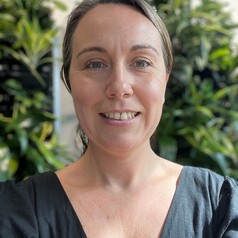
Ece Kaya
Senior Lecturer and Associate Head of Engagement, Management Department, UTS Business School, University of Technology Sydney
Dr Ece Kaya is the Associate Head of Engagement and Senior Lecturer in the Management Department at the UTS Business School. She is also the author of the book "Transformation of Sydney’s Industrial Historic Waterfront: The Production of Tourism for Consumption". Prior to this appointment, she worked at Western Sydney University as a tutor, subject coordinator, and lecturer, where she completed her PhD in heritage and tourism studies at the Institute for Culture and Society. Ece also holds an M.Sc. in urban planning. Her research expertise is on the relationship between tourism and urban transformation, the impact of gentrification on industrial waterfronts,and the historical and cultural context of industrial heritage places.
Ece is a Centre for Sport, Business and Society member at UTS. Her current research project explores women surfers' experiences and aims to understand wider issues of the surfing industry.
Less ![]()
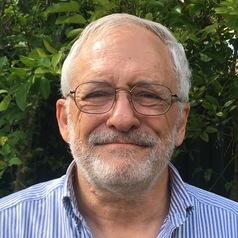
Ed Barrett-Lennard
Professorial fellow, Murdoch University
Dr Ed Barrett-Lennard is a Professorial Fellow at Murdoch University and a Senior Principal Soil Scientist at the Department of Primary Industries and Regional Development in Western Australia. He works in projects funded by the Australian Centre for International Agricultural Research (ACIAR) in Pakistan, Bangladesh, India and Vietnam. Ed works in the disciplines of agronomy, soil science and plant physiology. For 40 years, his research has focused on the growth of crops and pastures in saline and waterlogged environments, and on the adoption of saline agricultural principles by farmers and extension workers. He is an author of 80 scientific papers and 6 books.
Less ![]()
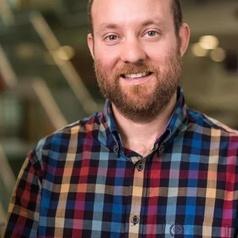
Ed Drewitt
PhD student studying the diet of urban peregrines, University of Bristol
Having studied what urban-dwelling peregrines eat during the past 25 years, I am now doing a PhD with the University of Bristol studying this aspect of their behaviour in more detail. I am analysing long term datasets of prey eaten by urban-dwelling peregrines as well as prey data from intensively studied nest web cameras during the nesting season.
Away from my research work I am a freelance naturalist, broadcaster and learning consultant engaging a wide range of audiences with nature and science. Activities range from tour guiding around the world, dawn chorus walks listening to birdsong, bird surveys and taking schools fossil hunting. I live in the Forest of Dean in Gloucestershire and regularly take people out to see its wildlife from wild boar to goshawks.
I have done extensive work with the BBC as a contributor, consultant and reporter. My learning consultancy work involves developing learning resources for wildlife and heritage organisations as well evaluation of projects and advising on how thesy can reach out to more people.
Less ![]()
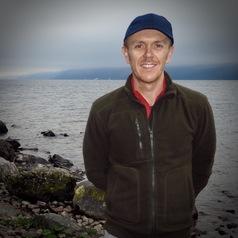
Ed Elson
Associate Professor of Astronomy, University of the Western Cape
I've spent most of my academic career using telescopes such as MeerKAT to study the kinematics and evolutionary processes of nearby galaxies.
Less ![]()
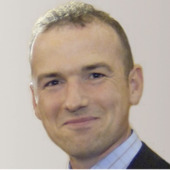
Ed Fieldhouse
Professor of Social and Political Science, and Principal Investigator of the British Election Study, University of Manchester
Less ![]()
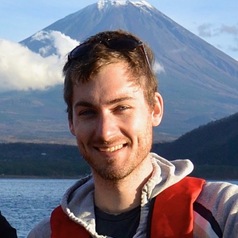
Ed Garrett
Lecturer, Physical Geography, University of York
Ed is a Lecturer (Assistant Professor) in Physical Geography in the Department of Environment and Geography at the University of York. His research focuses on the coastal zone and the use of sediments to understand a range of Earth system processes. In particular, he uses saltmarsh sediments to reconstruct sea-level change and the occurrence of earthquakes and tsunamis over centennial to millennial timescales. In doing so, he seeks to examine underlying mechanisms and provide evidence to underpin future hazard assessments and projections that enable the development of improved resilience and mitigation strategies. Another strand of his research focuses on the role intertidal environments including saltmarshes, seagrass meadows, and tidal flats play in sequestering and storing carbon.
Less ![]()
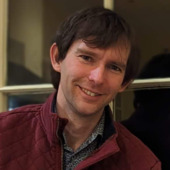
Ed Gasson
Royal Society University Research Fellow and Senior Lecturer, Department of Earth and Environmental Sciences, University of Exeter
Less ![]()
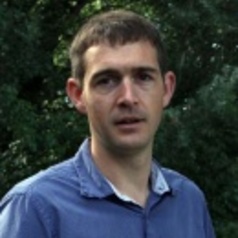
Ed Hawkins
Associate professor of climate science , University of Reading
Ed Hawkins is a climate scientist in the National Centre for Atmospheric Science (NCAS) at the University of Reading. Current research interests are in decadal variability and predictability of climate. He runs the Climate Lab Book blog and was an author on the latest Intergovernmental Panel on Climate Change (IPCC) assessment report.
Less ![]()
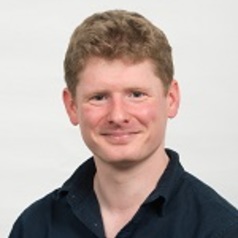
Ed Hutchinson
Senior Lecturer, MRC-University of Glasgow Centre for Virus Research, University of Glasgow
I'm a Senior Lecturer at the MRC-University of Glasgow Centre for Virus Research, where I lead a group that investigates the molecular biology of influenza viruses. Before moving to Glasgow I trained as a graduate student at the University of Cambridge and as a postdoctoral researcher at the University of Oxford.
Less ![]()

Ed Langham
Research Director, Institute for Sustainable Futures, University of Technology Sydney
Less ![]()
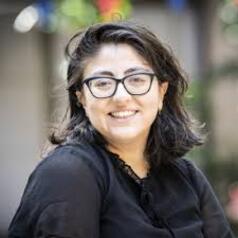
Eda Gunaydin
Lecturer, International Studies, University of Wollongong
Eda Gunaydin is a Lecturer at the University of Wollongong. Her writing and research explores class, capital, intergenerational trauma and diaspora. You can find her work in the Sydney Review of Books, The Age, Meanjin and elsewhere. She has been a finalist for a Queensland Literary Award and the Scribe Nonfiction Prize. Her debut essay collection Root & Branch: Essays on Inheritance won the 2023 Victorian Premier’s Literary Award for Non-Fiction.
Less ![]()

Eddie Rakabe
Research Associate, Sol Plaatje University
Eddie Rakabe is a researcher at Mapungubwe Institute for Strategic Reflection in the political economy faculty. He has previously worked for the Financial & Fiscal Commission, National Research Council and National Treasury. He holds a master’s degree in economic development from the University of Johannesburg. His research interests are in areas of public finance, informal economy, small business development, value chain analysis and market concentration. He is a regular contributor to various local print media.
Less ![]()
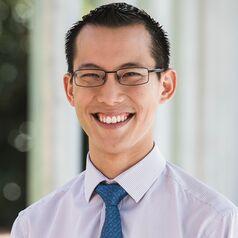
Eddie Woo
Professor of Practice, Mathematics Education, University of Sydney
Eddie Woo is Professor of Practice in Mathematics Education at the University of Sydney, working with preservice teachers in the Sydney School of Education & Social Work. Within the NSW Department of Education, he leads the Mathematics Growth Team, a statewide program of instructional leaders focused on engaging and evidence-based teaching practices. He continues to teach mathematics at Cherrybrook Technology High School and his Youtube channel, Wootube, has more than 1.7 million subscribers and 150 million views of his everyday classroom lessons. In 2018, he was named Australia’s Local Hero in the Australian of the Year Awards and listed as one of the Top 10 teachers in the world by the Global Teacher Prize. He is an internationally published author, TED speaker, and TV host of ABC’s Teenage Boss and Channel 10’s Ultimate Classroom.
Less ![]()
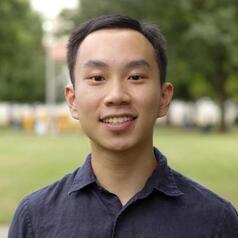
Eddy S. F. Yeung
PhD Candidate in Political Science, Emory University
I am a PhD candidate in the Department of Political Science at Emory University. I am also Princeton Dissertation Scholar at the Mamdouha S. Bobst Center for Peace and Justice, Emerging Scholar at the Harry Frank Guggenheim Foundation, and EPOVB Early-Career Fellow at APSA’s Elections, Public Opinion, and Voting Behavior Section.
I study how political communication, elite strategy, and psychology shape (1) the dynamics of conflict escalation and (2) public opinion on international cooperation and democracy, with a focus on East Asia, the United States, and their interactions.
I hold an MPhil in Economic Research from the University of Cambridge, where I was Hughes Hall Scholar and Hong Kong Scholar. I also hold a BEcon in Economics, Politics, and Public Administration from the University of Hong Kong, where I was John Swire Scholar, Undergraduate Research Fellow, and a first-generation-to-college student.
Growing up in Hong Kong’s public housing shaped how I think about social inequality, social justice, and social policy. It also drew me closer to the masses, whose formation of political attitudes is the crux of my research agenda.
My research has been published or is forthcoming in Comparative Political Studies, International Organization, Political Behavior, Political Science Research and Methods, Science, The Journal of Politics, and other journals.
Less ![]()

Eden Hoffer
PhD Student in the Faculty of Information and Media Studies, Western University
Eden Hoffer is a PhD student in the Faculty of Information and Media Studies (FIMS) at Western University. Her research primarily focuses on the criminalization of intimate partner violence victim-survivors and how Canadian policies and practices serve to harm them rather than offer them protection.
Broadly, Eden is interested in scholarship/research related to intimate-partner violence, motherhood + IPV, the criminalization of victims, women’s health, femicide, and legislation/policy.
Less ![]()

Eden Kamar
Postdoctoral research fellow, Hebrew University of Jerusalem
Dr. Eden Kamar is a postgraduate in the Evidence-Based Cybersecurity research group at Georgia State University. She received her Ph.D. in criminology specializing in cybercrime and cybersecurity, at the Hebrew University of Jerusalem and Her MPhil in Criminological Research from the University of Cambridge (UK).
Her research focuses on cybercrime and cybersecurity, namely, technology-facilitated sexual abuse of minors, phishing attacks, dark markets, malicious codes, and information system vulnerabilities. In her research, she employs innovative approaches and rigorous methods, including but not limited to honeypots, open source intelligence, digital forensics, and experiments, to understand different types of cybercrime, cybersecurity vulnerabilities, and cyber victimization.
Less ![]()
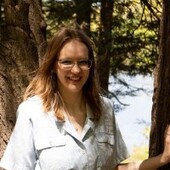
Eden Lowinger
Research Assistant in Social Work, Binghamton University, State University of New York
Less ![]()
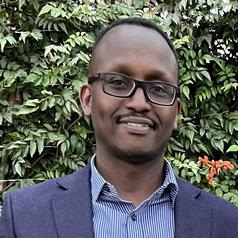
Edgar Githua
Lecturer in International Studies, Strathmore University
Edgar Githua holds a PhD in international relations from the United States International University-Africa, Nairobi, Kenya. He is affiliated with the United States International University-Africa and Strathmore University. He is the author of “Spoilers and Peace Agreements: The South Sudan Conflict (2013-2019)", published in 2023. His research interests include peace and conflict resolution, negotiation and mediation, international affairs, security, and diplomacy. He is also an internationalaffairs analyst for various media houses, including NTV Kenya, Citizen TV Kenya, VOA, TRK News, A54 News, and Capital FM.
Less ![]()
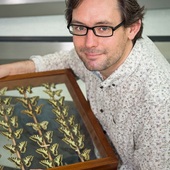
- Market Data























